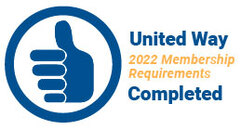|
In these articles, we have presented a very neutral view of people involved in substance misuse/addiction, but their families and the people around them will tell quite a different story. They will tell you that the person addicted to a substance is not the person they used to be. Things that interested them in pre-addiction days, no longer have any appeal. Their loved one is consumed with obtaining drugs and maintaining the drug supply. Drugs overpower every other motivator in life: family, job, hobbies, work, even children.
Brain research backs this up. “Drug addiction isn’t as simple as a person making bad choices. Rather, it reflects a disease of the very system that makes good choices possible.” Dr. Nora Volkow In their book, The Molecule of More: How a Single Chemical in Your Brain Drives Love, Sex and Creativity—And Will Determine the Fate of the Human Race (BenBella Books, 2018,) Daniel Lieberman and Michael Long describe the major role of dopamine in the chemistry of addiction. They explain how the dopamine desire circuit is designed to promote behaviors that lead to survival with an eye on the future. Dopamine urges you to possess and accumulate anything that might help keep you alive—whether you need it or like it—dopamine doesn’t care. It makes us want it right now. Dopamine activation in the desire circuit triggers motivation, energy, enthusiasm, and hope. It feels good. Dopamine turns on the imagination, producing visions of a rosy future. But, it is the salesman in no position to make the dreams come true, only making promises it cannot keep. Addictive drugs hit the dopamine circuit with an intense chemical blast, hijacking the brain. Nothing else can match it, stimulating it far more intensely than natural rewards like food or sex. The substance misuser’s entire life becomes focused exclusively on the drug. Drugs become the most important thing, overwhelming all other motivation and concerns. From the outside it looks like substance misusers are making irrational choices, but their brains are telling them that their choices are perfectly logical. The euphoria of drugs provides a bigger dopamine dose than just about any experience you can name. Substance abusers take drugs until they pass out, get sick, or run out of money; the gnawing craving is never satisfied. Many of the decisions that substance misusers make are impulsive, because they can only think of the immediate pleasure, not long-term consequences. Desire for dopamine overpowers the more rational parts of the brain, causing the user to feel powerless to resist. It’s as though their free will has been comprised by an overwhelming urge for the immediate pleasure of drugs. Addiction is not a sign of weak character or lack of will power. Instead it is a vicious cycle of the desire circuits getting thrown into a pathological state, powerfully demanding more stimulation, consuming all attention and motivation, and profoundly influencing a person’s will. In spite of these neurological changes, treatment works, and recovery is possible. People do recover from the snares of addiction with treatment and support.
0 Comments
Your comment will be posted after it is approved.
Leave a Reply. |
AuthorLynn Saylor is the AmeriCorps member working with the United Against Opioid Abuse Initiative alongside the White County United Way. She is a major facilitator of the United Council on Opioids serving White County and a regular contributor to local media. Archives
October 2020
Categories
All
|

 RSS Feed
RSS Feed
